PET-films – Masterbatches 04-11-2022 - Arhive
PET-films – Masterbatches
Crude Oil Prices Trend

-Coca-Cola HBC in Nigeria installs a high-speed Sidel Super Combi
Sidel recently completed the installation of its high speed, flexible and digitally enhanced Super Combi packaging line at the Nigerian Bottling Company (NBC). NBC is part of Coca-Cola Hellenic, the third bottling partner of the Coca-Cola Company, which sells more than 2 billion cases annually to 600 million consumers in 29 countries. Nigeria is its southernmost market.
In June 2022, Sidel installed the African region’s first Sidel Super Combi line for carbonated soft drinks (CSD) at the NBC plant in the northern city of Challawa. Capable of bottling speeds of 65,000 bottles per hour, this high-speed combo line was the perfect solution for NBC to meet Nigeria’s booming CSD market. Defined by the head of the engineering group Theodoros Kappatos as “the ideal project” in honor of its smooth performance, this is the fifth line that Sidel has installed, based on a relationship that has grown stronger and stronger since 2017, when Sidel planned and executed. a line in Abuja that has since given excellent results for the bottling company.
Carbonated soft drinks are very popular in Nigeria, consuming above the regional average of 17 liters per capita per year. Sales of low-calorie, low-sugar options are increasing as more Nigerians embrace healthy eating. CSD is one of the best performing soft drink segments, growing 6.7% between 2019 and 2020. Premium brands dominate CSD, led by Coca-Cola with a volume share of 38.7% .1
The Super Combi solution
Sidel Super Combi is an all-in-one solution that includes blowing, labeling and filling. This technology is increasingly being chosen by large beverage companies such as Coca-Cola, who continue to invest in the latest high-speed, high-efficiency equipment and have confidence in Sidel’s quality, consistent world standards and continuous innovation.
Flexibility was a key consideration when choosing NBC equipment. The Challawa line must accommodate 20 different SKUs, with a variety of brands including Coca ‑ Cola, Coke Zero, Fanta and Sprite in 600ml and 350ml PET bottles, and quickly adapt to different caps and labels.
“We have built such a strong relationship with Sidel. Over the course of several projects we have worked on together, Sidel has shown that they truly understand our business, “says Theodoros Kappatos, Engineering Group Manager, NBC.” With Sidel at our side, we know we can easily meet demand in this market in rapid growth. The Challawa line is a prime example of Sidel’s unique capabilities. Having been completed ahead of schedule, it underscores the fact that we have selected the right partner for this development. ”
Greater hygiene
Hygiene was a key element for NBC, ensured by the Sidel solution.
At the beginning of the line, the cleaning conditions are ensured by EasyFEED with its UV lamps and a preform dedusting system is integrated in the blower. Having installed high efficiency particulate filters (HEPA) on the roof, an airtight enclosure keeps the filling environment safe, preventing any potential risk of contamination and further increasing the already exceptional standards of hygiene. The tank, the filling taps and the pipes, always in continuous contact with the product, are made of high-grade stainless steel, S / S AISI 316L. Finally, the automatic Cleaning In Place (CIP) is performed with automatic blind bottles, allowing superior hygiene for all types of beverages.
Enhance sustainability
The new complete Sidel line will allow the customer to save energy and resources. The Super Combi can blow bottles using the lowest possible blowing pressure, with water recycling in the transfer phase and a filtration system on the filler. Its Gebo OptiFeed closure feeding solution also has low energy consumption and no air consumption, offering high quality caps thanks to features that allow easy management of the caps and that automatically detect the quality and color of the caps. Sidel BlendFILL, which combines mixers and filling tanks in one compact system, reduces CO2 consumption by up to 50%. After all, the EvoFilm shrinkwrapper offers energy savings thanks to its new light tunnel belt and eco tunnel fins.
Digitally advanced performance
To ensure maximum performance of the line, NBC has chosen to use Sidel’s Evo-ON® software suite. An example of how digitization is accelerating in the African market, the Evo-ON® system aggregates and analyzes equipment data, offering real-time and proactive customizable alerts, notifications, dashboards and reports.
EVO-ON consists of three powerful applications:
Evo-ON® Care, an intelligent app that analyzes component data and monitors trends to minimize unplanned downtime and reduce operating costs. Built-in predictive capabilities allow NBC to anticipate the maintenance of specific parts at the most appropriate time. As a result, it can extend component life by up to 30% and help improve Overall Equipment Effectiveness (OEE) by up to 3%.
Evo-ON® Eco monitors utilities and media consumption. It provides valuable inputs to reduce the carbon footprint, suggesting timely corrective action on any source of unexpected consumption. Using all of these elements, it helps reduce emissions and costs, as well as identify energy use best practices and consumption variations by shift, recipe and SKU.
Evo-ON® Performance is focused on productivity and ensures that production units meet their performance targets. Based on root cause analysis, it identifies any hidden opportunities to increase efficiency, providing recommendations to help users resolve efficiency losses and optimize line performance. It also defines priorities based on the issues that most affect the performance of the customer’s line with machine problems automatically classified by level of importance; as a result, the Overall Equipment Effectiveness (OEE) can be increased by up to 20%.
A partnership with a track record
The Sidel team drew on the experience gained from working in this large country with its demanding logistics during recent installations for NBC in Benin City, Challawa and Owerri. All installations have been validated with high line efficiency between 98.2% and 99.7% upon delivery. Sidel also provided engineers to help train and train NBC operators after each line was installed.
Together, Sidel and NBC are building a trusted partnership and the foundation for future projects to support NBC’s continued success in Nigeria.
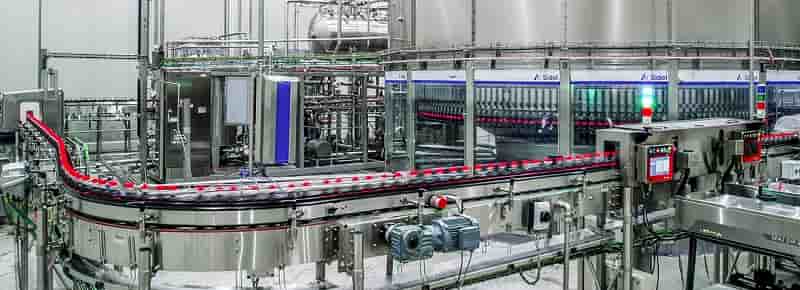
-Manjushree Technopack and IISc together for innovative recyclable plastic packaging
Manjushree Technopack Ltd. (MTL) has signed a Memorandum of Understanding (MoU) with the Indian Institute of Science (IISc), Bengaluru, to create innovative and sustainable plastic packaging solutions. As part of the MoU, IISc will establish a Center of Excellence for the upcycling and recycling of thermoplastic materials used in a wide range of rigid plastic packaging found in everyday life, from soft drink bottles to cleaning products. such as washing pads.
This will see IISc and MTL develop solutions to turn waste into plastic packaging to allow for repeated recycling of products. The organizations will also collaborate to develop a recyclable elastomeric material for all plastic pumps and triggers, and will also work to strengthen PET bottle caps, which are made from 100% recyclable plastic.
One of the key objectives of this MoU is to replace a range of non-recyclable packaging materials with single-layer recyclable materials, which will help make transportation more economical and reduce breakage and damage. Another area of focus of the collaboration is the replacement of cardboard-based packaging, such as those used in pizza boxes, with expanded polyolefins, which offer better thermal insulation and weight reduction.
The MoU is another step towards fulfilling MTL’s goal of building a greener and cleaner environment through increased recycling and reduced use of natural resources.
Thimmaiah Napanda, MD & CEO, Manjushree Technopack, said, “We are delighted to partner with a prestigious institute like IISc to support our vision of sustainable plastic packaging solutions. This is a significant development that will allow us to explore opportunities in existing technologies developed by IISc in the polymer segment. The creation of the Center of Excellence will be key to bringing these innovative products to market faster and more effectively and we are grateful to IISc’s test labs with advanced machines, technology and tools. Looking ahead, we intend to compare the carbon footprint in the process and recycling aspects for various materials in rigid packaging with the IISc. ”
Dr Suryasarathi Bose, Associate Professor, Polymer Processing Group, said, “We aim to leverage each other’s strengths by working together on innovative and environmentally focused projects that we hope will become an industry example in the years to come and have an impact in terms of upcycling and recycling of plastic packaging that are present in our daily life ”.
IISc, established in 1909, has become India’s premier institute for advanced science and technology research and education and is an institution of excellence recognized by the Indian government and MTL. With over 42 academic departments and centers, IISc collaborates with numerous technology giants to find scientific and technological solutions to some of the world’s most pressing challenges. It is also registered with MCA for carrying out CSR activities in education and research.
MTL is the largest manufacturer of PET bottles and preforms in South Asia. With 40 years of packaging experience in India, the company meets the packaging requirements of the FMCG, pharmaceutical and liquor industries and works with some of the biggest brands in these segments, such as Coca-Cola, PepsiCo, Mondelēz, Reckitt Benckiser, Dabur, L’Oréal, Unilever, Nestlé, Heinz and Tata Global, Marico.
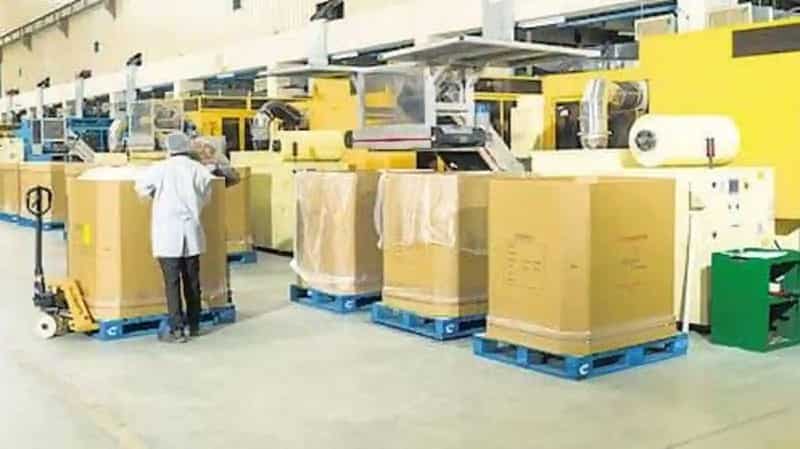
-Celanese closes €11bn acquisition of DuPont’s M&M business
Texas-based Celanese Corp. has completed the €11 billion acquisition of the majority of DuPont’s Mobility & Materials (M&M) business, the company announced 1 Nov. Celanese announced the acquisition of M&M in February 2022.
The transaction includes a broad portfolio of engineered thermoplastics and elastomers, established brands and intellectual property and global production assets, among which the entire Engineering Polymers business and select product lines within the Performance Resins and Advanced Solutions business lines. Combined, the businesses generated net sales of approximately €3.5 billion and operating EBITDA of about €800 million last year.
The transaction was cleared by the European Commission subject to Celanese’s divestment of its global TPC business to Taro Plast, an Italian producer of engineering plastics in connection with EU antitrust concerns. Following the Commission’s conditional approval decision on 11 October, on 28 October Celanese successfully secured an approval decision from the Commission for Taro Plast’s purchase of the TPC divestment business.
This included Celanese’s production facility in Ferrara, Italy; and the Pibiflex and Riteflex TPC brands.
“We are excited to welcome the M&M team to Celanese and I want to thank the teams that worked diligently to successfully close this acquisition today,” said Lori Ryerkerk, chairman and chief executive officer.
“As one team, we will be better positioned to elevate the growth trajectory of engineered materials and to create value for our customers and shareholders,” she said.
DuPont has retained its Auto Adhesives, Multibase and Tedlar product lines following the sale, which combined generated net sales of approximately €950 million and operating EBITDA of approximately €120 million in 2021.
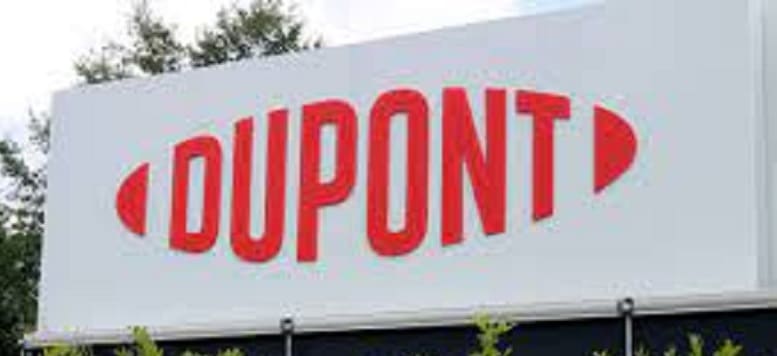
-Extrusion Technology Converts Low-Quality Recyclate into High-Performance Blown Film
Latest Reifenhäuser EVO Fusion line can accept printed PE/PP, sticky PE-based films, and PCR.
Blown-film line manufacturer Reifenhäuser held a press conference at its K 2022 booth, where the latest film extrusion developments were outlined, among them the innovative EVO Fusion technology for converting low-level plastic waste into valuable packaging products. Based on an intelligent metering concept, the core of the system is a co-rotating twin-screw extruder coupled with a degassing unit and melt pump that “make blown film producers independent of highly fluctuating recyclate qualities and ensure a stable production process — even when processing low-quality input material,” said the company.
Using EVO Fusion, Reifenhäuser said that blown-film producers can process previously unusable, low-quality recyclates into high-performance blown films for simple end-use applications, such as trash bags or mailing bags. Until now, such low-grade recyclates could only be used for simple and thick-wall injection-molded products.
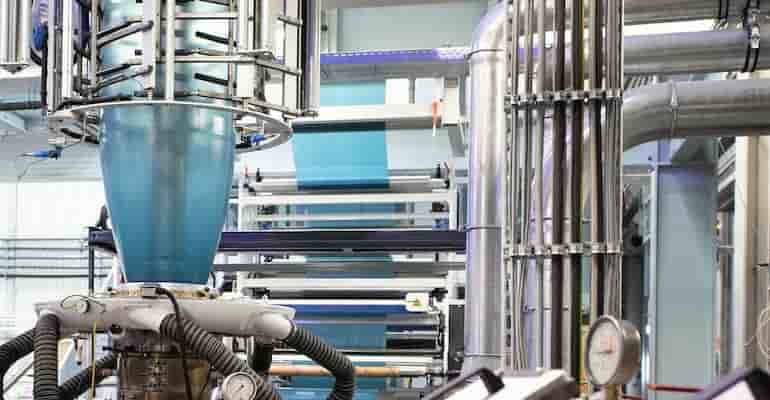
-Antifogging compound for PET food films / Masterbatches for improved recyclability
At the recently concluded K 2022 plastics fair in Düsseldorf, Germany, masterbatch and compound manufacturer Sukano announced the launch of a new antifogging compound for PET packaging.
In a development partnership with US speciality chemicals producer Emery Oleochemicals , the antifogging compound has been designed for use entirely in cold applications to prevent fogging of packaging surfaces.
According to Daniel Ganz, head of product development at Sukano, the material is suitable for all types of coextruded PET film (hard and stretched). It has also been approved for direct food contact.
Sukano has long since been collaborating with Illig (Heilbronn, Germany; www.illig-group.com) on thermoforming. For temperature-resistant PET packaging such as cups and trays, they developed the nucleation masterbatch, CPET light, which makes it possible to extrude a transparent film that is dimensionally stable at up to 100°C.
At K 2022, Sukano showed how this and other masterbatches and additives can facilitate the recyclability of packaging – including replacing polypropylene or polystyrene containers with easily recyclable PET. At the corporate level, the firm is also increasingly focusing on circularity and resource conservation. There are plans to add a solar plant to the Schindellegi site for energy generation.
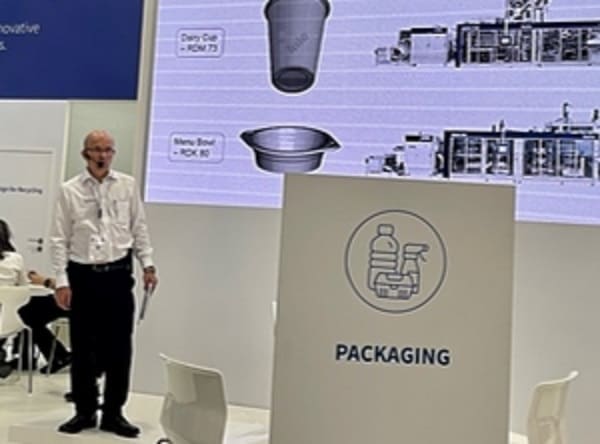
-LANXESS enables smaller carbon footprint thanks to PA6 high-performance plastics
Polyamide 6 (PA6): a cost-effective and more climate-friendly alternative to polyamide 66 compounds, Providing the same performance potential.
Further CO2 reduction with glass fibers made from waste glass, HiAnt customer service improves carbon footprint thanks to load-optimized lightweight components.
The Durethan-brand polyamide 6 compounds from LANXESS are not only cost-effective alternatives to polyamide-66-based compounds but are also much more climate-friendly. This is according to calculations performed by the specialty chemicals company based on its own data and on figures published by a range of institutions including various associations of the plastics industry. “With 3.66 metric tons of CO2 equivalents emitted per metric ton of material produced, the carbon footprint of our polyamide 6 base resin is much more than 40 percent lower than the current published European industry average for polyamide 66,” says Dr. Guenter Margraf, Head of Sustainability and Product Management in High Performance Materials. “The carbon footprint of our polyamide 6 compounds is therefore also correspondingly smaller, which is why they are the perfect substitute for polyamide 66.”
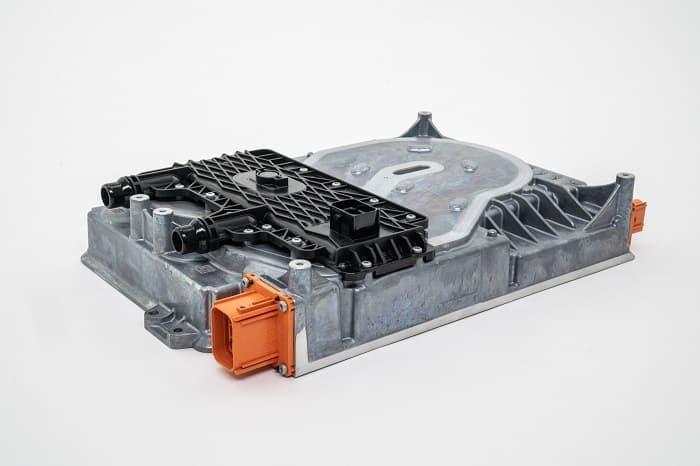
-AMP Robotics raises 91 million in Series C financing to support waste infrastructure modernization
AMP Robotics Corp. has raised $91 million in corporate equity in a Series C financing, led by Congruent Ventures and Wellington Management as well as new and existing investors including Blue Earth Capital, Sidewalk Infrastructure Partners (SIP), Tao Capital Partners, XN, Sequoia Capital, GV, Range Ventures, and Valor Equity Partners. This new round of funding follows a $55 million Series B financing led by XN in January 2021.
“Advancements in robotics and automation are accelerating the transformation of traditional infrastructure, and AMP is seeking to reshape the waste and recycling industries,” says Michael DeLucia, sector lead for climate investing at Wellington Management. “By bringing digital intelligence to the recycling industry, AMP can sort waste streams and extract additional value beyond what is otherwise possible.”
AMP will use the latest funding to scale its business operations while continuing its international expansion. Demand for robotics to retrofit existing recycling infrastructure continues to thrive; among demand for recycled commodities of all types, the industry needs the capacity to meet the 2025 goals of companies’ consumer packaged goods post-consumer recycled (PCR) content commitments. The new capital will enhance manufacturing capacity to support a fleet of approximately 275 robots around the world and further AMP’s ongoing development of AI-enabled automation applications for recycling. AMP also has three production facilities in the Denver, Atlanta, and Cleveland metropolitan areas. The funding will help drive further growth of the company’s secondary sortation business in the United States.
“Our focus from the outset has been our application of AI-powered automation to economically and sustainably improve our global recycling system,” says Matanya Horowitz, founder and CEO of AMP Robotics. “We’ve been fortunate to attract a passionate team, loyal customers, and visionary investors along the way. With this new funding, we’ll accelerate our efforts to modernize and expand our recycling infrastructure, aiding society’s path to a circular economy.”
The recycling industry contributes nearly $117 billion to the U.S. economy, according to the Institute of Scrap Recycling Industries, and the industry processes 130 million metric tons of valuable commodities annually. The global waste and recycling services market is expected to grow considerably in the coming years amid heightened consumer concern about the environmental impacts of waste.
Of the estimated 44 million metric tons of plastic waste managed domestically in 2019, approximately 86 percent was landfilled, nine percent was combusted, and five percent was recycled, according to a recent Department of Energy report on plastics. Landfilled plastics represented significant losses to the country’s economy in 2019: an average of $7.2 billion USD in market value. The recovery of U.S. plastic packaging and food-service plastic alone could represent a pool of earnings before interest, tax, depreciation, and amortization (EBITDA) of $2 billion to $4 billion per year.
“AMP’s technology is rewriting the economics of recycling, marrying purpose with profit for our recycling partners,” says Abe Yokell, co-founder and managing partner of Congruent Ventures. “It is a privilege to be able to support such a mission-driven team as they have grown from an eight-person operation to an industry leader.”
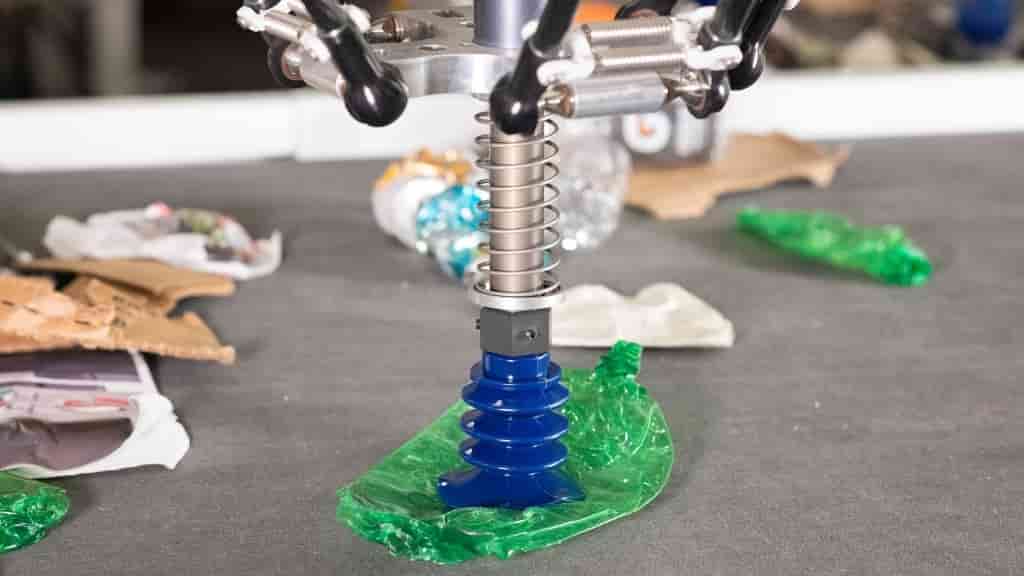
-Resin Price Report: October Scares Up Highest Trading Tally Since May
Heavy volumes of PE changed hands, as prices held firm for the third straight week.
The spot resin markets had their busiest week of the month, bringing the October tally to its highest level since May, reports the PlasticsExchange in its Market Update. Prices for both polyethylene (PE) and polypropylene (PP) held flat, marking the third consecutive static week for PE, although price consolidation continued with the top side trimming while the bottom of the market firmed up. The PlasticsExchange said the price action reinforced its belief that the market cycle has been establishing a long trough floor, particularly for PE. Signs are emerging that PP could be hitting bottom, too.
The unbearable weight of massive oversupply
The market has been plagued by massive oversupply, which kicked off a steep price break since topping out in May. Producers have been working feverishly to correct the imbalance, more so for PE than for PP. In particular, they have sought to reduce inventory levels by throttling back operating rates while increasing exports via aggressive discounts. The strategy is starting to pay off, although an overhang, while dwindling, still remains in some grades.
Railcar offerings were comparatively light the last week of October, as producers have become more comfortable with their inventory positions and did not feel compelled to chase low-ball bids or spray the marketplace with offers to see what sticks. As such, with sellers becoming more passive, buyers have been returning to the market asking for material and starting to pay up a bit. The PlasticsExchange still considers resin market sentiment to be in the neutral zone, but the tide has been turning with a wisp of bullishness beginning to permeate, said the Chicago-based resin clearinghouse.
Producers position themselves for Q1
Some PP producers are still offering deeply-discounted railcars for higher volume orders as they try to line out Q4 reactor time and better position themselves for Q1 in 2023. In the meantime, October contracts are on the cusp of being finalized. PE is gravitating toward a rollover in price, which would be considered a pretty big win for producers. PP is on course for a double-digit drop, with a potential $0.15/lb on the horizon. PGP contracts are leaning toward a healthy $0.12/lb decline, while a margin contraction of perhaps $0.03/lb or more, should round out the total decrease, according to the PlasticsExchange. New resin capacity is still expected to come online this year, but startup delays would not be a surprise. Case in point: Nova said last week it has moved the planned startup of its new PE plant in Canada from Q4 to the first half of 2023.
PE resin prices hold firm
PE kept active with fairly heavy volumes changing hands. Prices managed to hold firm for the third straight week, supported by better buying from domestic and Mexican accounts. Tightening supplies were starting to be felt, and there were few end-of-the-month Generic Prime railcar deals to be had, which helped lift off-grade prices by a penny or two. High-density (HD) PE Blow Mold and low-density (LD) and linear-low-density (LLD) PE for both Film and Injection were the primary movers at the PlasticsExchange last week, while HDPE for Injection and Film saw relatively little interest. Even as PE spot levels have seemingly found a floor, buyers continue to enjoy good availability for most grades near these yearly lows. Some more obscure grades have been in short supply, however, and have become more difficult to source, such as LDPE Injection, EVA, POE, and rotomolding resins.
While producer direct exports still seem to be quite elevated, incremental spot dealings to overseas regions have become challenged by an uptick in Houston pricing, the strong US dollar, and competitive Asian offers. Producers continue working down inventory levels following the roughly 710 million pound drawdown from domestic stockpiles in August and September. This comes amid lower operating rates — well below 80% — that are likely to factor into another drop in October inventory levels. Some producers indicate that resin production will remain significantly reduced through the end of the year. October contracts are closer to settling flat, despite price increase nominations of $0.05 to 0.07/lb, which were not expected to see the light of day unless a significant production disruption occurred. Stable October contracts would cap a three-month slide of $0.11/lb, as producers look to regain pricing power, which has been in the hands of buyers since June.
PP resin activity improves
PP activity improved, inquiries increased, and completed volumes returned to more typical levels. Prices ended flat for the second week in a row, as a combination of slightly better demand and firm PGP prices lent support to an otherwise fluttering market. Demand drivers were similar to the previous week, with some processors looking to re-stock drawn-down inventories or needing to procure quick truckloads because of late railcars.
Homo-polymer (Ho) PP was the main mover, with very high melt leading the way; some Prime low- and mid-melt HoPP, as well as co-polymer (Co) PP No Break also transacted. The PlasticsExchange reports sizable customer demand for well-priced CoPP off-grade, and bids have been moving higher to attract supply.
While the US economy seems to be settling into a higher interest rate environment, buyers are taking a cautious approach because of global economic uncertainty. Until there is a clearer picture of the global geopolitical situation, demand will remain cautious, with producers needing to keep operating rates low to get inventories under control and regain pricing power.
As noted in the previous Resin Price Report, the PlasticsExchange believes prices are nearing the low of this cycle. September polymer-grade propylene (PGP) contracts settled at $0.44/lb; if October finalizes down $0.12/lb, that will put October PGP at $0.32/lb.
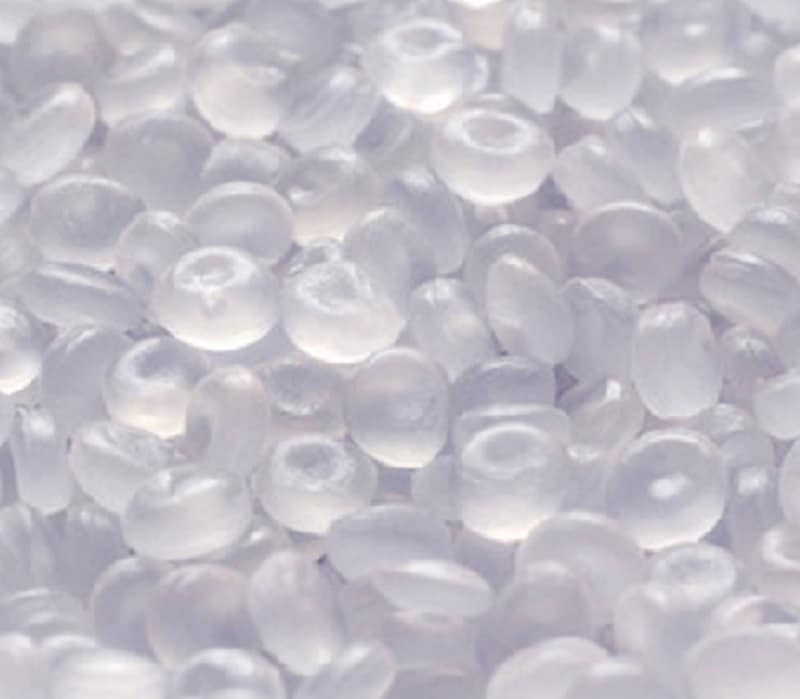
PET-films – Masterbatches
